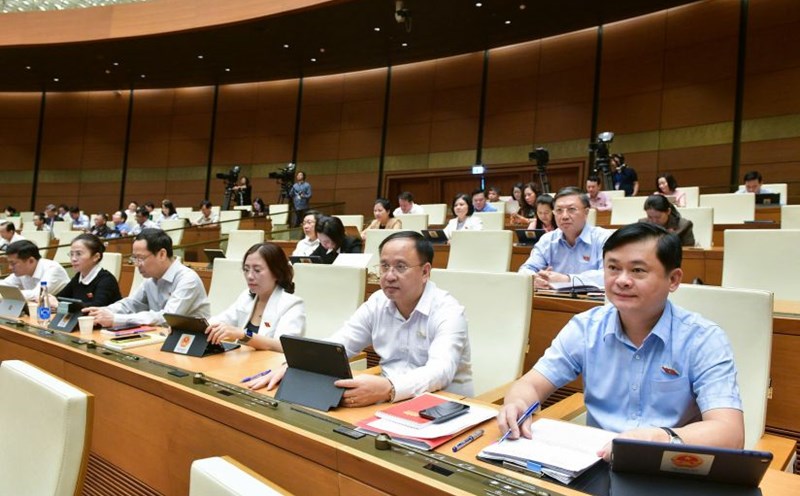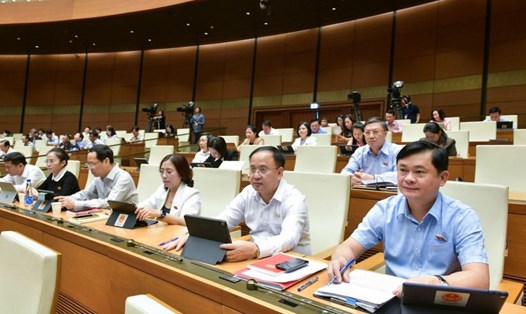Newspaper revenue continues to decline
In the report at the 2023 National Press Conference, by the end of 2023, for newspapers and magazines, the rate of self-funding for regular expenditures accounted for 39%, partially self-funding for regular expenditures accounted for 36%, and the state budget for regular expenditures accounted for 25%.
For radio and television: the ratio of ensuring regular and investment expenditures accounts for 6.94%, self-guaranteeing regular expenditures accounts for 26.39%, and partially self-guaranteeing regular expenditures accounts for 66.67%.
Revenue of newspapers and magazines in the first 9 months of 2023 decreased by about 10% compared to the same period in 2022. Total revenue in 2023 of radio and television stations decreased by more than 20% compared to 2022.
Many news organizations still rely heavily on advertising revenue. At times, advertising revenue accounts for over 60%, and for some news organizations, it is even 90%. However, news organizations are now facing the risk of a sharp decline in revenue, in a context where social media platforms have taken away about 70% of advertising revenue from mainstream news organizations.
In terms of print media specifically, the change in the way people consume information as more people turn to reading news online for free or via social media has reduced the number of loyal readers of print media.
Many newspapers face increasing printing, shipping and staffing costs, while revenue and demand for printed newspapers are decreasing. This poses a major challenge to maintaining and “supporting” print newspapers.
Having difficulty selling newspapers, having to organize cumbersome bidding
Not only do newspapers have difficulty competing with other media platforms, but they also face difficulties in bidding when distributing and selling newspapers to units.
In fact, today, units that buy printed newspapers with a quantity of over 100 million VND are required to organize a bidding. This leads to a paradox, many press agencies cannot sell their own newspapers, and if they can sell, they have to go through many procedures, which are troublesome and time-consuming.
Speaking to Lao Dong Newspaper, Associate Professor, Dr. Nguyen Thuong Lang - Senior Lecturer at the Institute of International Trade and Economics, National Economics University, said that the strong development of 4.0 technology has created great competition for the press, especially print newspapers. Many newspapers are having difficulty maintaining and their revenue is decreasing.
"According to the current Bidding Law, units wishing to buy newspapers (if over 100 million VND) must conduct bidding, not designated bidding.
The bidding process creates many difficulties for press agencies. For example, the bidding process is often lengthy and complicated, requiring units to spend a lot of time completing procedures. This delay can affect access to information necessary for timely activities.
The costs associated with preparing documents, organizing tenders and carrying out the approval steps can be higher than buying newspapers directly. This puts a heavy strain on the finances of government agencies. During the tendering process, factors such as price can become a top priority, leading agencies to choose products that are not suitable or do not meet the required quality standards.
In addition, when demand changes rapidly, the bidding process can make it impossible for units to purchase newspapers in time, leading to information becoming outdated or no longer relevant. Units need flexibility in purchasing newspapers, but the bidding process can limit this ability, forcing them to comply with rigid regulations" - Associate Professor, Dr. Nguyen Thuong Lang said.
To ensure revenue for press agencies, many experts believe that newspaper purchasing should be regulated by designated bidding to ensure specificity and timeliness.











